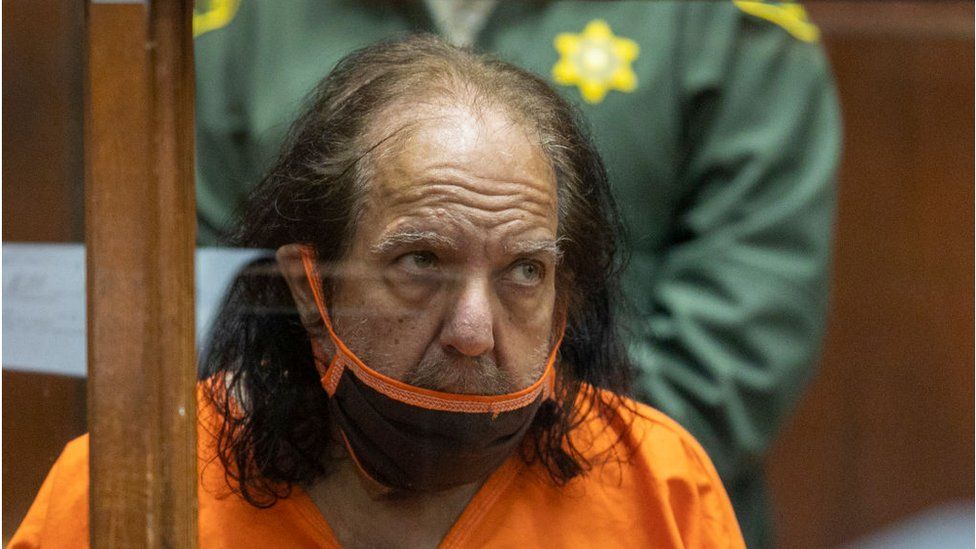US adult film star Ron Jeremy has been indicted on 34 counts of sexual crimes involving 21 women, spanning more than 20 years, Los Angeles prosecutors say.
Prosecutors allege that Mr Jeremy assaulted the women, who ranged in age from 15 to 51, between 1996 and 2019. He faces over 300 years in jail.
Mr Jeremy, 68, pleaded not guilty to the charges on Wednesday.
He is one of the biggest names in the adult film industry and has featured in over 1,700 films since 1979.
The 19 August indictment, which was unsealed Wednesday, accuses Mr Jeremy of 12 counts of rape, including that of a 17-year-old girl in 2008 and a 15-year-old girl in 2004.
The most recent charge is from 1 January 2020, with a 21-year-old woman alleging she was raped and sodomised.
His lawyer said on Wednesday that Mr Jeremy maintains he is completely innocent.
Mr Jeremy, whose real name is Ronald Jeremy Hyatt, remains in jail on $6.6m (£4.81m) bail.
To avoid a public preliminary hearing that would include witnesses testifying in open court, Los Angeles County prosecutors presented their case to a secret grand jury to obtain the indictment.
A similar tactic was used in the case of disgraced Hollywood mogul Harvey Weinstein.
Last June, Mr Jeremy appeared in court on charges he raped two women and sexually assaulted two others between 2014 and 2019. At the time, his lawyer denied the charges, claiming that Mr Jeremy had been “a paramour to over 4,000″ women” and that “women throw themselves at him.”
While no trial date has yet been set, Mr Jeremy is due in a Los Angeles court on 12 October for a pre-trial conference.
Mr Jeremy is one of a small number of men, along with Mr Weinstein, who have been investigated by a Los Angeles District Attorney’s task force set up to investigate allegations of sexual abuse in Hollywood in the wake of the #MeToo movement.
In a statement, Los Angeles County District Attorney George Gascón said that “far too often, survivors of sexual assault suffer in isolation”.
“We must ensure that survivors have all options available to help with recovery, including trauma-informed services for healing and support to report such crimes.”
Source: BBC




















































